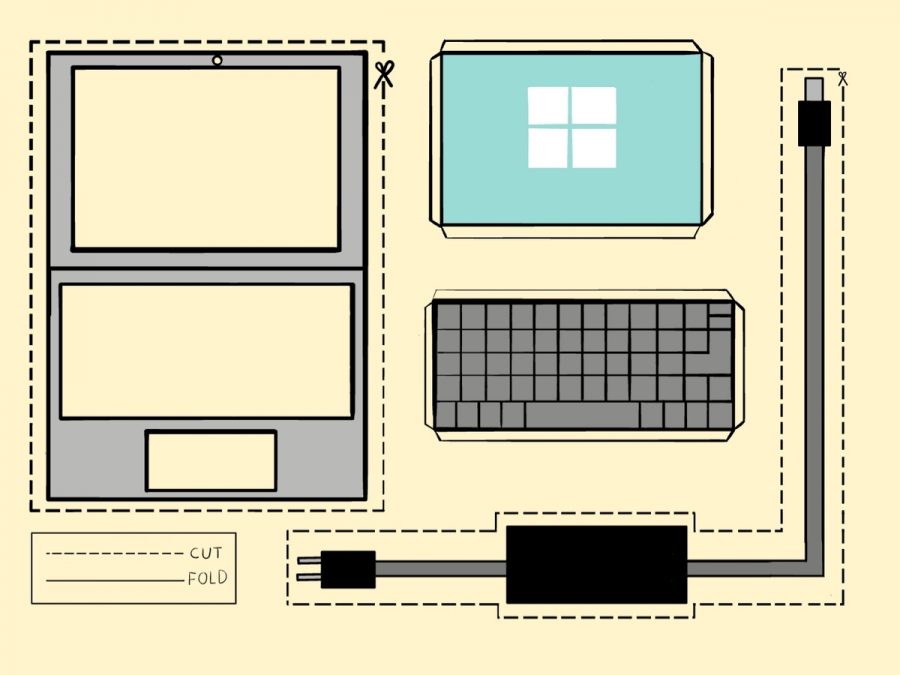Laptops have become an essential part of the Longhorn experience. Whether a laptop becomes a classroom, textbook, teacher, meeting room or stadium, the digital age has opened COVID-free doors for students to easily access the Forty Acres.
However, these computers are expensive, and for many, a nice laptop isn’t within their budget. To combat this, the UT for Me – Powered by Dell Scholars program, which opened this year to support Pell Grant-eligible students, offers Pell Grant students a free Dell laptop and other resources.
There’s just one problem with this generous offer: The laptops aren’t working.
Either the university needs to compensate these students for their troubles, or they need to stop promising students laptops they can’t afford to fix.
Biology freshman Maia Rodgers struggles to attend class on her Dell laptop.
“One of the biggest problems … is Wi-Fi connection issues,” Rodgers said. “Right when I finish my second class, my Wi-Fi will … cut out.”
Most often, she will have Zoom on while doing an assignment, and the laptop is unable to have both systems running.
“It happens way too often,” Rodgers said. “If I’m having to worry about my quiz not submitting … it causes me a lot of stress.”
Rodgers is not the only one with these problems. After days of the campus computer store filling with overheating laptops and fuzzy screens, students banded together to create a GroupMe for people with similar technological difficulties.
There are 530 students in the GroupMe.
Among those students is Francis, who chose to keep his last name anonymous out of fear he would lose his UT for Me scholarship. Francis has become a hero to the Dell Scholars.
“I try to find solutions to the tech problems … I experiment on my computer to see if it’s not going to work or if it works,” Francis said.
Studying remotely outside of Austin, Francis has attempted to call Dell with the most common problems students face, such as glitchy screens, Wi-Fi connectivity and overheating.
Students attending classes remotely from home cannot go to the campus computer store to get it fixed, and it seems like Dell has limited solutions.
“The third time I called they said, ‘We can’t help you with that. Sorry.’ … Other people are having the same problems with Dell customer support,” Francis said. “It’s a bit disappointing and a bit heartbreaking. These laptops will probably end up in a landfill.”
Despite these problems, KJ Harris, UT for Me’s program director, is optimistic about UT’s ability to help.
“It’s been a learning experience,” Harris said. “(But) the goal of this program … is that if you ask a question … we are going to get it resolved.”
Despite the number of students who have had technical problems, Harris said she hasn’t seen many of these complaints directly, and she encourages students to email her if they need help.
“I don’t think that there have been a significant amount of technical difficulties with the population that we’re talking about,” Harris said. “We’ve given out almost 2,300 laptops.”
The students that have reached out to UT for Me have not received fast responses and have decided that Dell customer services are usually quicker.
Five hundred thirty students out of 2,300 is almost 25%. If a quarter of the laptops UT is giving UT for Me students are faulty, then they should seriously rethink what they are offering.
During this pandemic, the last thing students should be dealing with is technological problems that directly impact their education, and the last thing the University should do is refuse to listen to them.
Gomez is a journalism freshman from Lewisville, Texas.





















